- News
- Reviews
- Bikes
- Accessories
- Accessories - misc
- Computer mounts
- Bags
- Bar ends
- Bike bags & cases
- Bottle cages
- Bottles
- Cameras
- Car racks
- Child seats
- Computers
- Glasses
- GPS units
- Helmets
- Lights - front
- Lights - rear
- Lights - sets
- Locks
- Mirrors
- Mudguards
- Racks
- Pumps & CO2 inflators
- Puncture kits
- Reflectives
- Smart watches
- Stands and racks
- Trailers
- Clothing
- Components
- Bar tape & grips
- Bottom brackets
- Brake & gear cables
- Brake & STI levers
- Brake pads & spares
- Brakes
- Cassettes & freewheels
- Chains
- Chainsets & chainrings
- Derailleurs - front
- Derailleurs - rear
- Forks
- Gear levers & shifters
- Groupsets
- Handlebars & extensions
- Headsets
- Hubs
- Inner tubes
- Pedals
- Quick releases & skewers
- Saddles
- Seatposts
- Stems
- Wheels
- Tyres
- Health, fitness and nutrition
- Tools and workshop
- Miscellaneous
- Tubeless valves
- Buyers Guides
- Features
- Forum
- Recommends
- Podcast
news
"What hope do we have if the police don't even know the laws?": Ex-pro cyclist Phil Gaimon wins in court over two-abreast riding 'offence'; Cycling group slams "unsafe, unacceptable and substandard" shared-use path plan + more on the live blog
SUMMARY
No Live Blog item found.
 Phil Gaimon goes to court over two-abreast ticket (YouTube/Phil Gaimon)
Phil Gaimon goes to court over two-abreast ticket (YouTube/Phil Gaimon)22 August 2024, 16:08
"What hope do we have if the police don't even know the laws?": Ex-pro cyclist Phil Gaimon wins in court over two-abreast riding 'offence'
Former pro cyclist-turned-YouTube KOM hunter Phil Gaimon has documented a bizarre experience that saw him pulled over by a police officer in California for riding two-abreast on an empty climb. Thankfully, the former Garmin Sharp rider went all the way to court to contest the ticket he received from the very confident officer who was keen to stress at the roadside that he would be in court... only to not show up on the day, two months later.
Just like here in the UK, there is no law against riding two-abreast in California, Gaimon taking issue with the police officer's warning and questionable legal interpretation.
"What hope do we have if the police don't even know the laws," Gaimon said. "So he's on his motorcycle next to me saying 'it's against the law to ride side by side' and I say: 'I'm sorry officer, that's not the law'.
"I appreciate police in general, it's a sacred thing to put yourself in harm's way to protect others [...] I don't want to be the guy who pulls out a camera when the cop stops him, I don't want to deal with this, I don't want a ticket, I don't want to go to court, I don't want the rage clicks this video's going to get, but he said a lot of weird stuff. At one point he offered to take his vest off, it was bizarre and super uncomfortable."
Things continued when the officer told Gaimon and his ride partner he should ride single file because otherwise drivers will hit him and that will be his [Gaimon's] fault.
"I don't want to go to the internet and embarrass a public servant, but if you're going to insist on it... fine," Gaimon continued, explaining how in the whole seven-minute stop only two vehicles passed. "So this is a traffic stop for a not law to hypothetically remove a short inconvenience for two people. Finally he did find the code and I was like 'oh good, this is over' but then he chose a very bizarre interpretation that would make him still right."
With guidance from Bike Legal, Gaimon went to court and built up plenty of potential evidence and questions to take for his hearing, ultimately all completely unnecessary when the very confident officer surprisingly decided not to show...
"Congratulations to me, I won," Gaimon concluded. " I don't feel victorious whatsoever... what have I won? I don't have to pay the ticket, I lost two days of my life going to court. Imagine if I was a person who had to take two days off work or couldn't afford to pay the ticket? Either way it's going to cost you, so I won the case but ultimately this was the punishment."
22 August 2024, 16:43
Ben O'Connor wins Vuelta stage six, takes lead of race by almost FIVE MINUTES
22 August 2024, 15:02
"An error in judgement": Police apologise for "dangerous" high speed close pass on cyclist during emergency response, which "dropped below standards expected"
22 August 2024, 14:20
UK cycling sector launches e-bike battery education campaign
The UK cycling sector, including industry trade bodies, leading e-bike brands, local bike shops and national charities, has announced a national campaign to boost electric bike safety knowledge and inform more people of the benefits of e-bikes.
Research by the Electric Bike Association found that concerns over battery fires are putting people off e-bikes, with 23 per cent of UK adults surveyed saying they are hesitant to buy an e-bike after reading about fire incidents, most of which are caused by defective and low-quality products such as aftermarket lithium-ion batteries, charges and conversion kits from non-reputable sources.
Launching today, the E-Bike Positive campaign hopes to share the positive effects of e-bikes and "equip the UK public to buy safe, charge safe and ride safe on e-bikes". As well as advising the government on how to better protect UK consumers and businesses, the E-Bike Positive campaign also pledges to help people identify high-quality, legal e-bike products through free resources including:
- Expert support - 100+ expert local bike shops have already pledged to advertise, sell and repair only UK legal and safety-checked e-cycles.
- Educational resources - battery safety guides, resources and independent advice for shoppers, cyclists, e-bike sellers and media.
- Extra assurance - the e-bike industry is developing a new scheme to highlight reputable, high-quality brands who thoroughly safety-test their e-cycles and batteries.
Sarah McMonagle, Director of External Affairs, Cycling UK, said: "Like traditional pedal cycles, e-cycles boost physical and mental health, improve air quality, and reduce carbon emissions. They're a great option for people who cycle in a hilly area, experience mobility challenges, carry children or shopping, or simply don’t want to get sweaty on their commute.
"When purchased from reputable manufacturers e-cycles are very safe. That's why we're supporting this education campaign alongside Cycling UK's ongoing calls for the UK government to make e-cycles more accessible."
Our sister site ebiketips will have more on this...
22 August 2024, 13:55
Best road bike tyres 2024 — get more comfortable and faster with fewer punctures
22 August 2024, 12:19
The most bizarre start to a Grand Tour stage ever? Vuelta a España peloton rolls out of Carrefour supermarket
The much-anticipated Carrefour stage has finally arrived and boy did it deliver...
— Cycling out of context (@OutOfCycling) August 22, 2024
It was all a celebration of the supermarket brand's 12-year involvement with the race, the Jerez store seeing 170 pro cyclists roll through its checkout area and out onto a 185km route to Yunquera which looks set to be a day for the breakaway.
#LaVuelta24 pic.twitter.com/d549ibrVg3
— Várhegyi Beni (@MrVrhgyiB) August 22, 2024
22 August 2024, 12:15
"It will completely destroy everything": Pub owner claims controversial cycle lane construction is costing her business "£5,000 a week", month after bike lane also blamed for "awful" chippy's demise
22 August 2024, 10:35
Dutch Cyclists' Union expresses concerns over rise of shared-use paths in Amsterdam
It's not just in Norfolk where cycling campaign groups are raising concerns over shared-use infrastructure...
According to Florrie de Pater of the Amsterdam Cyclists' Union there has been an increase in spaces being made shared-use, such as the passage under the Rijksmuseum.
"Things are made more difficult for cyclists everywhere by those shared spaces. In the city centre, for example, the route from east to west is almost impossible. A few alleys that used to be very accessible for cyclists are almost closed off. The Damstraat is almost impossible to get through and more and more alleys — look at the nine streets, for example — are more or less closed off for cyclists," she told AT5.
"Shared space is fine, but not on the main cycling network. I have to say that tourists seem to determine these days — especially in the centre of Amsterdam — where cyclists are allowed to ride. So the policy is tailored to where most tourists are."
The local authority responded to the Rijksmuseum tunnel concerns by suggesting it would look to see how it could clarify the shared-use space. It's nice to know even in Amsterdam things aren't perfect...
22 August 2024, 10:02
Huge discounts spotted as bike and cycling clothing prices slashed in summer clearance sales at Wiggle, Trek, Rapha, Evans Cycles and more
22 August 2024, 09:53
Devon and Cornwall Police add 39 e-bikes to fleet as officers impressed by "faster, quieter patrols" and the "wellbeing benefits of being active and outside"
Devon and Cornwall Police have launched an electric bike project following a "successful pilot". The force said there are now 39 e-bikes in use across Camborne, Plymouth, Penzance, Exeter, Bodmin, Cullompton, Falmouth, Truro Launceston, Hayle and Helston, with officers reporting less pressure on the force's vehicle fleet as a result, reduced car dependency, "faster, quieter patrols" and a host of "wellbeing benefits".
Superintendent Ian Thompson said: "The electric bikes initiative is boosting the ability of our neighbourhood teams to engage with and be visible in their communities, whilst allowing them to be in places that do not always have a police presence. In turn, this is taking the pressure off our vehicle fleet and allowing us to be less reliant on cars and reduce our carbon footprint.
"The feedback from officers is extremely positive, who realise the benefits of faster, quieter patrols and the wellbeing benefits of being active and outside. We are expanding the fleet of electric bikes to other areas of the force and hope soon that all Neighbourhood Teams in Devon and Cornwall will have access to them for use within their normal duties. Currently, there are 89 neighbourhood officers and PCSOs who have been trained so far, with opportunities to train more officers in the coming months."
The force added: "In just a day, one officer covered 71 kilometres using an e-bike and received positive feedback from the community. Work is underway to purchase additional e-bikes and deploy them to more sites around Devon and Cornwall."
22 August 2024, 09:30
Cycling group slams "unsafe, unacceptable and substandard" shared-use path plan that should be "transformative" but is "not fit for purpose"
Norfolk County Council is seeking feedback on plans to extend a "cycle-friendly" route known as "the Yellow Pedalway" using £1.9m of funding from the the Department for Transport, Greater Norwich Growth Board's Infrastructure Investment Fund, and Norfolk County Council's Local Transport Plan.
In its current layout the route relies on shared-use infrastructure, something that will remain, the council wanting to add a new crossing, a speed limit extension, extra bus stops and an "expansion" of the "Pedalway", the Eastern Daily Press reports. The plans have not gone down well with the Norwich Cycling Campaign, whose chairman Peter Silburn said he was "shocked" by the "unsafe, unacceptable and substandard" proposals that are "not fit for purpose".
"We were shocked when we saw this scheme go out to consultation," he told the local newspaper, saying shared-use infrastructure should only be a "last resort". "Poor quality schemes like this fail to get more people onto their bikes. To get more people cycling we need proper infrastructure built to the national design standards that provide safe, direct and convenient routes. This isn't one of them.
"This is an unacceptable scheme that is unsafe and substandard and we cannot support this as designed."
Norfolk County Council's spokesperson responded: "These proposals were developed in discussion with Active Travel England. We have now written to properties in the project area and contacted a range of stakeholders and interest groups inviting them to share their views. We have taken on board the feedback received from Norwich Cycling Campaign and will consider this as a whole, alongside all the other responses collected by the consultation deadline."
The consultation closes on Monday 26 August.
22 August 2024, 08:40
Valtteri Bottas says "refreshing" cycling "more fair" than Formula One as you don't need best bike to win
22 August 2024, 07:53
"Given a choice, many people would cycle if it was safer": Cyclist mythbusts common excuses of people claiming bike journeys aren't for them
Let's kick off Thursday with a good old social media discussion, live blog regular Bob From Accounts urging new Transport Secretary Louise Haigh to build more cycle lanes to increase safety and get more people on their bikes. The signs look good on that front, Haigh this week suggesting the Labour government would invest "unprecedented levels of funding" in cycling.
Bob From Accounts also addressed a commonly heard line... "cycling isn't a practical daily travel choice for most people", something you've probably read before online, or in certain newspapers. To which, he pointed out: "In 2022, 26 per cent of car trips in the UK were under one mile, and 71 per cent under five miles. Five miles by bike is approximately 30 minutes. Given a choice, many people would cycle if it was safer. More cycle lanes please."
"And for the usual excuses and quips about 'It's too cold', 'It's too wet'. We have a solution: coats."
Well, it works for the Netherlands and they get their fair share of rain... let's get some reaction because, as you probably guessed, this got quite a few people all riled up and tapping away furiously at their keyboards. To many of those people, no, nobody is saying that everyone in the world should be forced onto bikes... but hey, wouldn't the roads be much nicer for those who actually do need to drive if a decent chunk of the motor traffic was now using cycle lanes, walking or using public transport?
One reply asked: "How do I get a week's worth of shopping on a bike? What about two kids as well? One being a toddler?"
Bob From Accounts had an answer for that...
Another road.cc favourite, retired traffic cop Mark Hodson, who pioneered close pass operations during his career commented: "My shift once had 10 of its 12 officers cycling to work, the daily total commutes varied between 22 miles and 56 miles, with some extending rides to incorporate training routines, it's a case of making it work and providing the correct facilities so those that [people] 'could' give it a go."
Accepting that his experience was certainly at the extreme end of the spectrum and included several who would cycle for sport or leisure on top of commutes, Mark added: "Not everyone can or wants to, but if you enable those who can and want to you benefit all of society. Even if they just replace 25 per cent of their usual journeys by other means it's a hugely impactive for them and their communities.
Other reaction to the discussion included:
"Cargo bikes are an increasingly viable alternative for a second car that's mostly doing school runs etc."
"We have fantastic cycling routes where I live... currently massively overgrown. We need proper investment to make it work in the future."
"I used to leave my house 7am every day to catch the bus to work arrived 7.50 am. By bike 7.10am to arrive for 7.30 time for a cuppa and a chat before work. The ride home takes five to 10 mins longer... I lived on top of a hill."
Dan is the road.cc news editor and joined in 2020 having previously written about nearly every other sport under the sun for the Express, and the weird and wonderful world of non-league football for The Non-League Paper. Dan has been at road.cc for four years and mainly writes news and tech articles as well as the occasional feature. He has hopefully kept you entertained on the live blog too.
Never fast enough to take things on the bike too seriously, when he's not working you'll find him exploring the south of England by two wheels at a leisurely weekend pace, or enjoying his favourite Scottish roads when visiting family. Sometimes he'll even load up the bags and ride up the whole way, he's a bit strange like that.
Latest Comments
- Dnnnnnn 0 sec ago
Not sure what other options you have on a disc-braked bike!
- David9694 29 min ago
Do you even have railway lines that far north?
- chrisonabike 42 min 20 sec ago
If we can only build enough 2nd homes / buy-to-lets maybe that will ease the rental market, assure future housing for the children of the...
- TheUntypicals 1 hour 15 min ago
If businesses are suffering on Linthorpe Road it is entirely their own fault, most of the destination type shops moved out long before the cycle...
- giff77 1 hour 31 min ago
So where is the entitlement of wanting to get from A to B in relative safety? The city centre is dire regarding cycling infrastructure and while...
- whosatthewheel 1 hour 36 min ago
I live in a mostly flat town and can maintain 22-25mph. Makes no difference to drivers who still overtake frantically even only to slow down to my...
- Simon E 1 hour 38 min ago
It seems that virtually all of their road tyres are now prefixed 'One', which I think is counterproductive....
- chrisonabike 1 hour 44 min ago
Oh - I wondered if I was running the right pressure. Perhaps someone has some thoughts on what that might be for a road bike?
- Pot00000000 4 hours 11 min ago
👍🏼 IMHO, one of the main things to look out for is butted tubes, double or even tripple butted. ride safe and have a great Christmas
- wtjs 5 hours 38 min ago
And we can be sure that Police Scotland would be similarly disinterested...

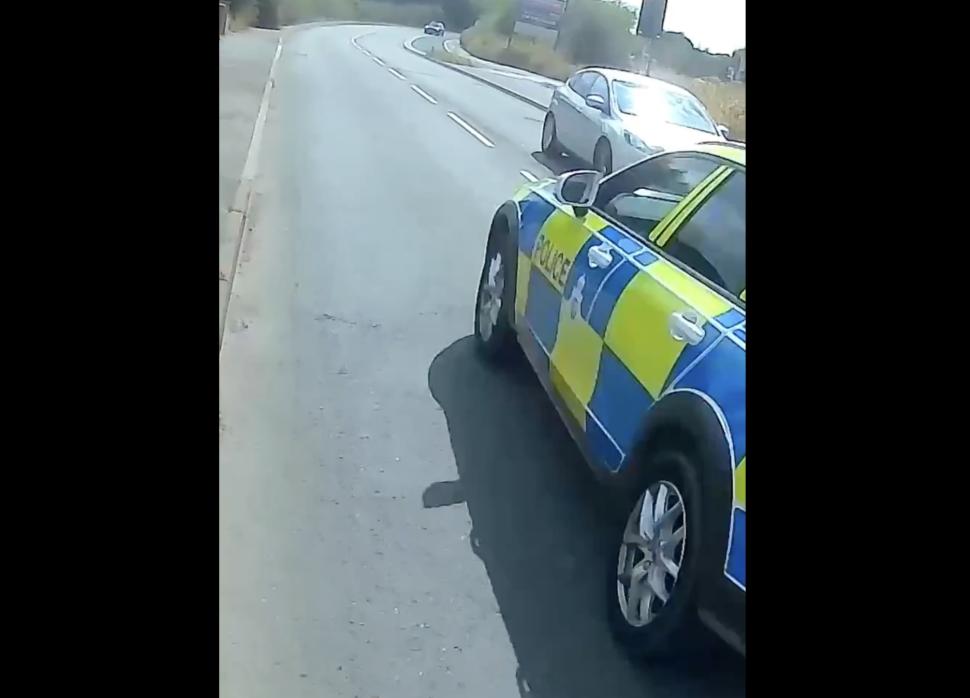

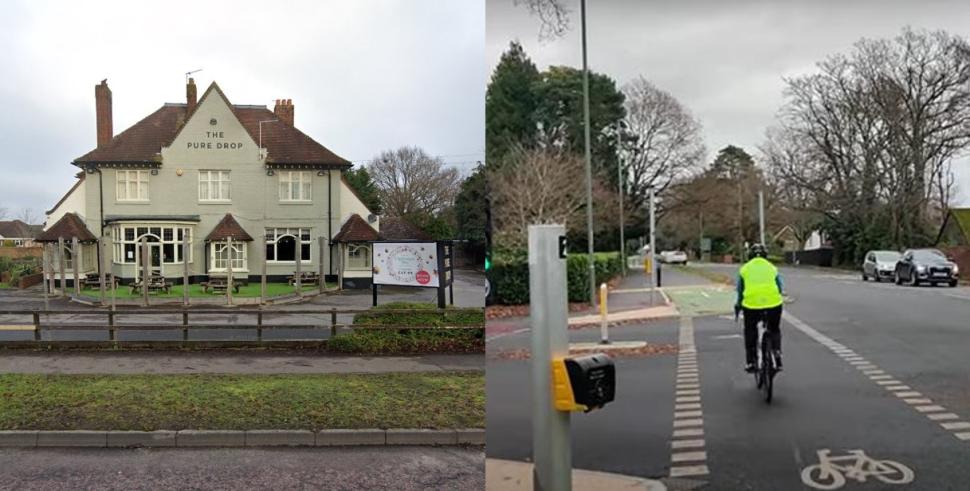
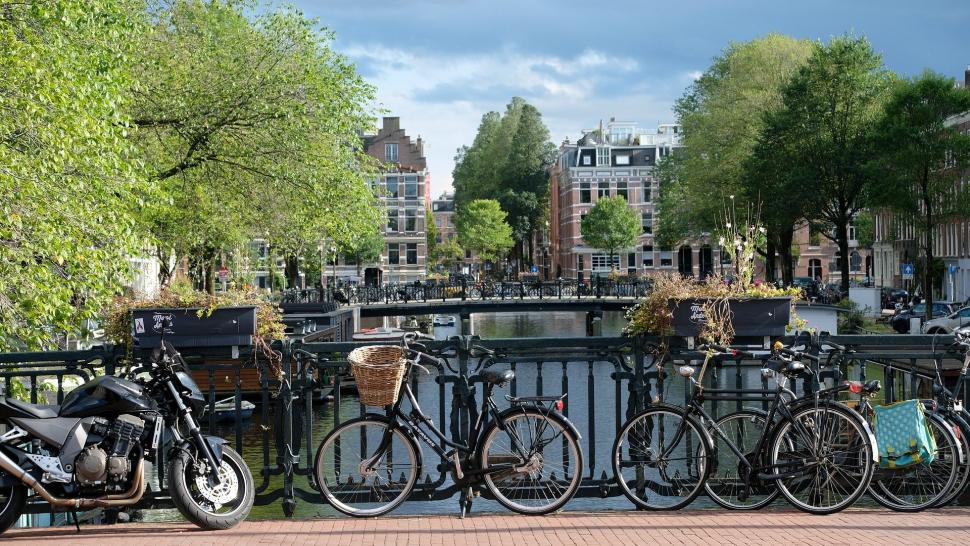

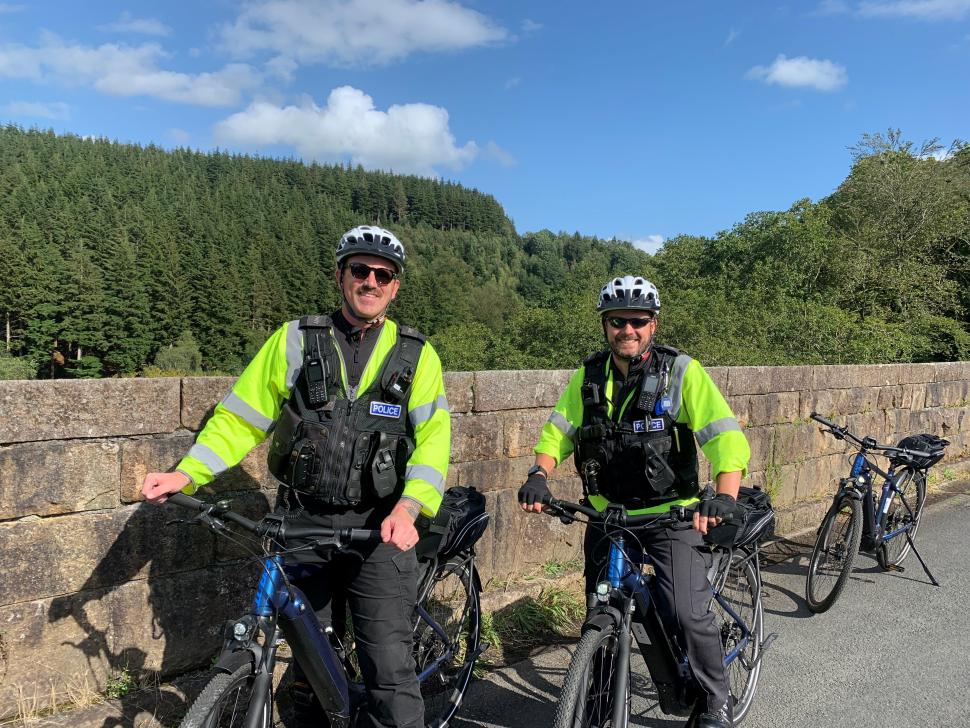
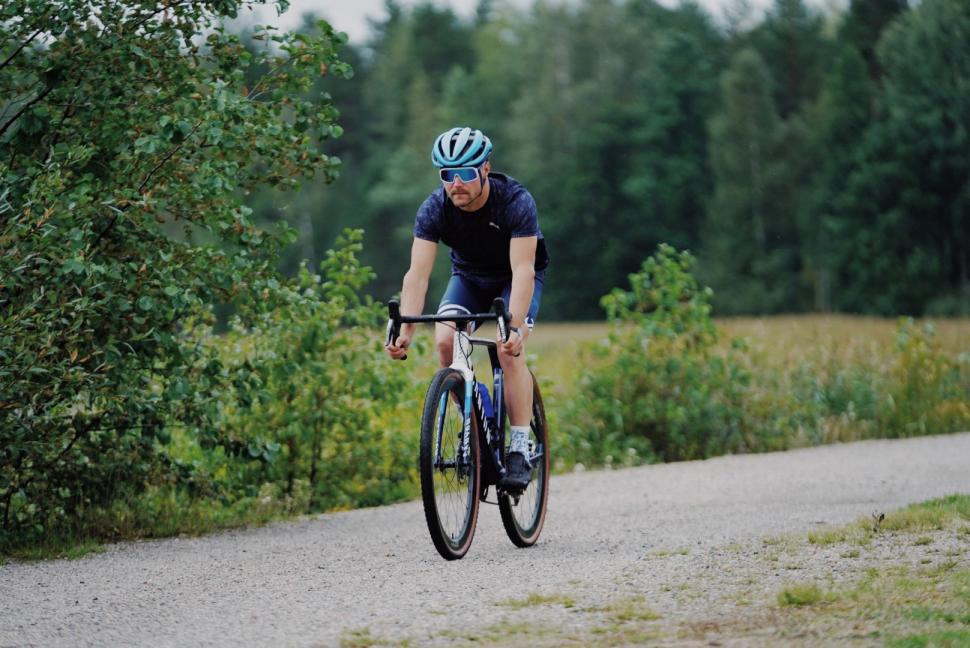
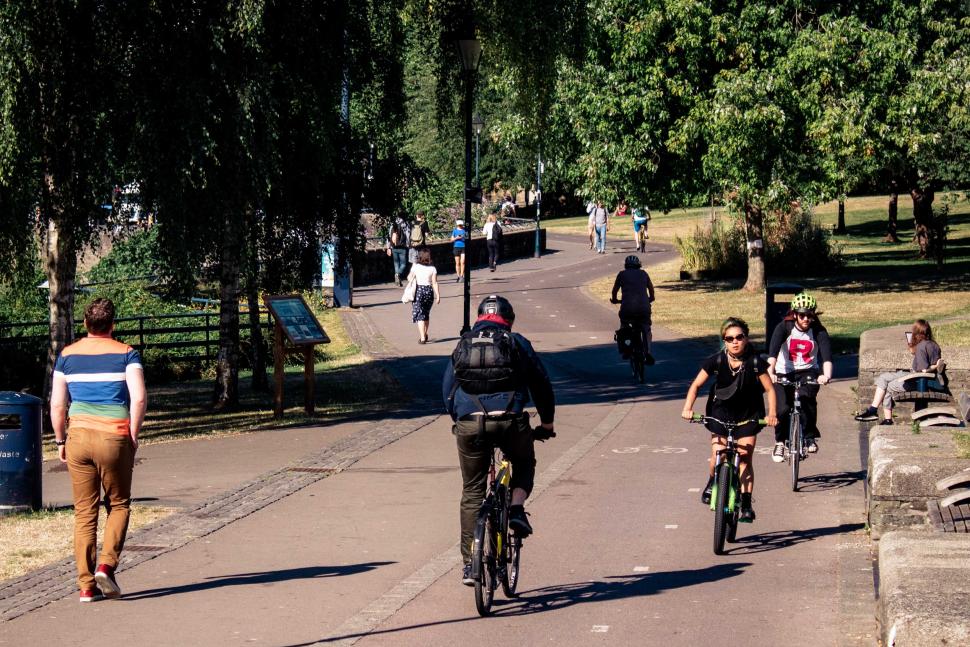
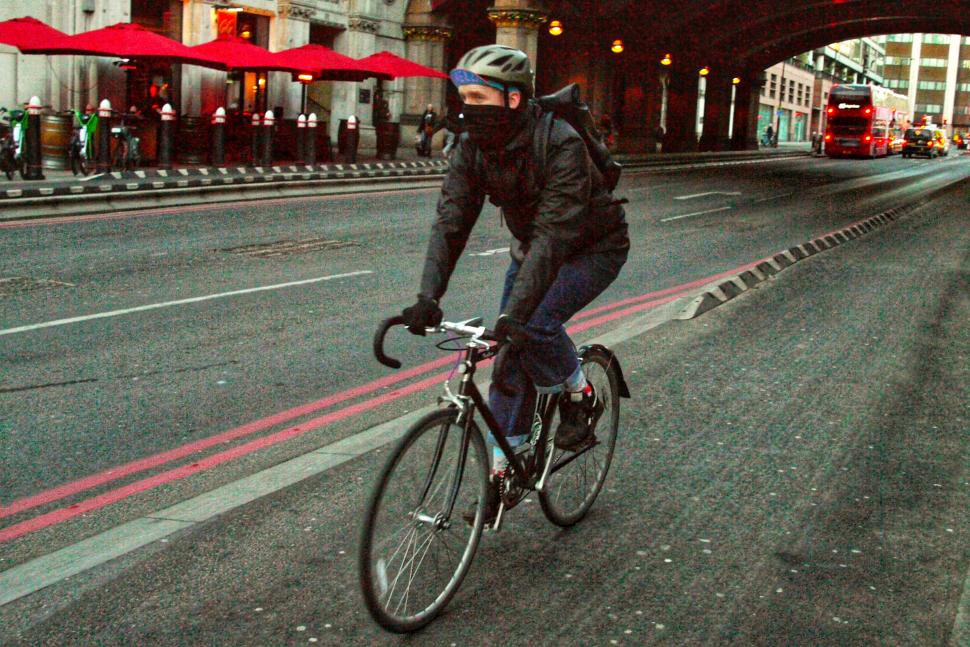

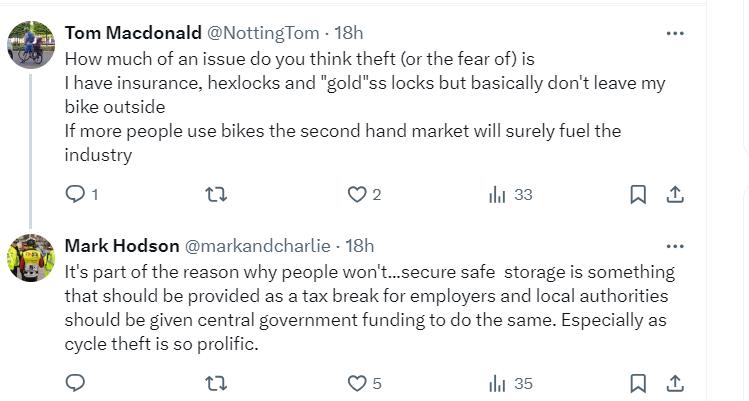
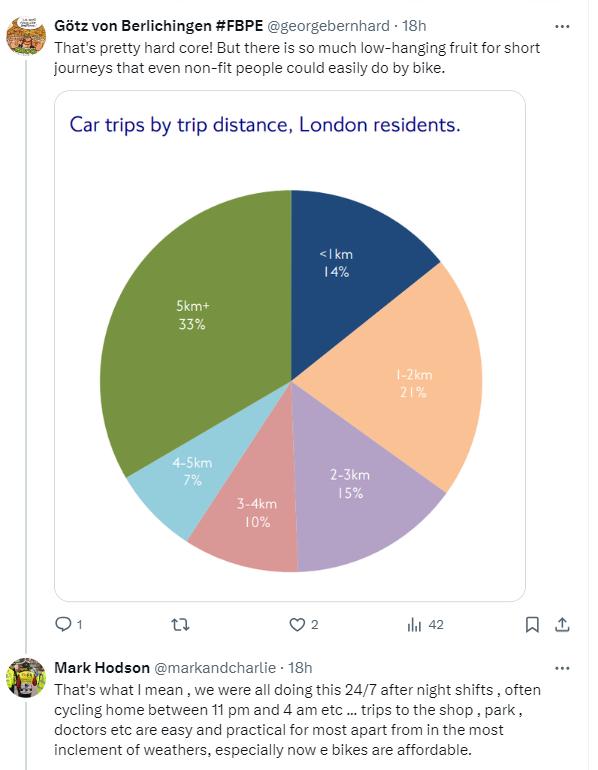
Add new comment
59 comments
Cycling in the Netherlands has an incredible 28% modal share, are they all masochists? I haven't ridden there as much as I'd like but when I have I've found it far from "hellish" and many orders of magnitude better than the UK.
Probably it's already unhelpful if the conversation is "defend that!" - as Chris Boardman has noted. (Here's his much more positive video on the benefits, now from quite a few years back).
If you do need mythbusting, a good first stop would be:
https://cyclingfallacies.com/en/
Another take would be David Hembrow's "list of myths and excuses" (he's a former UK cycle campaigner who became Dutch).
http://www.aviewfromthecyclepath.com/2011/02/all-those-myths-and-excuses...
No, it's not.
Yup. Ignorance trumps knowledge. Always.
As much as I enjoyed cycling in Copenhagen and the Netherlands, in a way these are bad examples because people always reference the lack of hills, and compare this (inaccurately) to many UK cities.
It is much better to point out that places like Oslo and Zurich have much higher cycling modal shares than the average UK city, yet are pretty hilly and have much harsher winters. Because they have proper cycling infrastructures.
Yes! "But the UK has hills" (but... not like Switzerland). "But it's cold and rainy and even still sometimes snowy in the UK" (and it was and perhaps still is in NL, and it's certainly cold and snowy in Oulu, Finland...)
Even within the UK (for those who will always say "yeah but that's irrelevant, it's not here) - while very few places have substantial cycling modal share and most places have "essentially none" - there are wide variations. The biggest (still Cambridge I believe, almost 5 times national average - per stats at Cycling UK) is mostly to do with demographics / history (the university). But we can probably note some differences have more to do with infra and local (authority) attitudes.
The Netherlands has hills. The south of the Netherlands is hilly. As are parts of Belgium. I mean... just watch the Amstel Gold race. Is the Cauberg not a hill? The Keutenberg? The Bemelerberg? Etc.
Cycling is still popular there.
I've cycled in the Appenines in Italy, and cycled past old women carrying shopping on bicycles. Uphill.
it really is a shame that cycling is frowned upon here in the uk , it's a great way to help the environment without a lot of effort . I commute myself on bike as only live a mile from work and cycle for pleasure as well .
Thefts and motorists intolerance often life endangering actions are the main reason most won't take it up .
Even though it would help with the environment, reducing carbon emissions, help reduce heath issues , ease up congestion in towns and cities.
I've used trailers to take the kids to school and nursery, do a weeks shopping etc .
We now have e-bikes and trikes for those who need extra help to get around on a cycle.
"Thefts and motorists intolerance often life endangering actions are the main reason most won't take it up ."
And having the worst road surfaces in Europe, if not the world, probably doesn't help.
Some of them are not great, but I'm pretty sure British roads are a
verypretty long way from "the worst road surfaces in Europe, if not the world ".What's remarkable about our roads is the coarseness of the chippings used and the fact that they often feel as though the weren't compacted with a roller but by people trampling on them. I haven't come across anything comparable anywhere else.
Has anyone here fallen off on a freshly chipped road? It looks like they would cut you to ribbons.
My personal hate is "surface dressing" where they rely upon passing motor traffic to press it all down, and you end up with drifts of gravel up against the kerb.
It seems to be down to the quality of the work, one of our local roads was surface dressed just before our club road race, I was dreading the race but the surface was great and still is 3 years later and there was no excess gravel lying around. Other roads done at a similar time were as you describe and are now breaking up again.
Yes and yes, it does. I stacked it because of the drifts of gravel brooksby highlights, and a really nice, wingmirror into right elbow close pass. I also hate surface dressing because often they don't even pretend to fill the holes underneath, so it makes them even harder to see.
Chipseal (with large chippings)! Argh!
We're not unique, but it's pretty unpleasant!
It's many reasons (including "but we already have a car right there").
Social pressures certainly play a factor.
A network of sufficiently safe, efficient and attractive routes for social cycling (and secure places to park / store bikes) would seem to be necessary, if not sufficient.
Road surfaces? Cycle and indeed injury-threatening surfaces aren't good (or the pavee of e.g. Edinburgh...) but I suspect that's not the initial barrier to cycling for most.
More clear thinking from Louise Haigh. I'm looking forward to seeing the results.
https://www.bbc.co.uk/news/articles/c9v8d4lvjryo
You can listen to Laura Laker's whole interview with her on this podcast (free, but some ads at the start).
It's all very confusing. Last week we were told that 6% of the population, given 4 years training, believe they could compete in the Olympics. A feat that this year would have meant cycling 170 miles at above 25mph average. Today we're meant to believe that cycling is impractical for the majority of people in this country. Surely there's a middle ground where the majority could cycle up to 5 miles at 10 -15mph?
We'll have to get fitter! According to figures in 2018:
Now that's about 8mph - but of course that's factoring a lot of people who just don't cycle in the UK e.g. the very young and old. OTOH they've understood that they need to facilitate people maintaining momentum on their bikes - so avoiding traffic lights completely or minimising wait times where they are needed.
I always think in Strava speeds which has auto pause of course. That isn't how most people are going to do a calculation. 8mph seems practical, especially for those on shared use paths which will bring the average down even further.
Agreed. But "speed" is a massive rabbit hole with many (triggering) branches. Frankly - not even people driving agree and there are pretty clear legal limits there...
It's common to see people not comparing like with like. Just one example - with driving average speeds in many urban areas are a lot lower than the speed limit, or the speeds cars can physically go. And that doesn't even mean that people are going slower than the speed limit when they are moving...
Without falling down the hole proper quality cycling infra (which is NOT shared-use paths!) by its nature should facilitate efficient movement. That's because cycling is most effective where people can maintain momentum, and certainly avoid coming to a complete stop *.
That often allows substantially higher speeds by the few who care to go faster.
* Don''t have source to hand but IIRC there's a calculation saying that every time "casual cyclists" have to stop it's equivalent to adding 100m or so to the journey.
I presume it's difficult to make a direct correlation but has there been a comparison between the cost of obesity, diabetes etc, to the Dutch health service vs the NHS?
Actually that - while not easy - is probably one of the easier calculations *.
NL do publish a whole bunch of reports. There is this US study from 2015 looking at that in NL. The UK government sponsored a review back in 2016 economic benefits of cycling which included NHS savings. I've seen something from Denmark like that (note that they set the baseline for health as current status quo I think).
Googling will actually find lots of these.
* But ... a bit reductive. Arguments in the political sphere about transport seem to a) quick to discount at least some of the costs (externalities) of motoring (it's almost "obviously if people are driving that is a benefit / all journeys are important") b) for cycling to reduce to "health benefits" in terms of costs. That's understandable.
BUT I think that's missing out on some of the less easily quantifiable but ultimately more salient benefits. (For a nice overview see here for NL). We're talking about choices about how our communities look, feel and ultimately are organised. For example it's easy to see how mass motorig has paradoxically accelerated social and indeed physical isolation, as jobs and amenities move from local communities and people are able to reach these in places they couldn't afford to live in. (Yes, this has been occurring since the industrial revolution / advent of trains etc.).
It might be summed up in "nicer, more liveable places" (recalling the title of Robert Weetman's blog). Less vehicle noise (this at least is quantifiable in health terms), potentially less need for tarmac covered space (when we reduce motor vehicle use) [1] [2]. More focus on "local" community connection - less physical barriers in terms of busy roads, potentially more resilience. Essentially a more "human" transport system (as long as we recognise the imporance of social cycling). People cycling look like people and you can say "hello". People inside a vehicle ... you're looking at a vehicle and you can't say "hi".
Clinkers...kilometres of clinkers. That's what slows me down over here.
That would be on more recreational routes?
In the city - junctions and traffic lights, that's what (drastically) slows me down. Unless I'm on one of the motor-traffic-free shared paths (I'm very lucky UK-wise), then it's dependant on whether there are many people walking.
Outside the city - me, that's what slows me down (my lack of fitness / hill climbing / absense of fairing on the recumbent).
I don't see it as especially contradictory. It simply highlights that "fitness" is far from the only or even biggest (perceived) barrier to cycling.
Yes, they could compete in the olympics - if cycling was not too impractical, too cold, to dangerous, too lycra, too costly, too warm, too wet... It's not their fault then that they're no gold-medalists, is it?
Pages